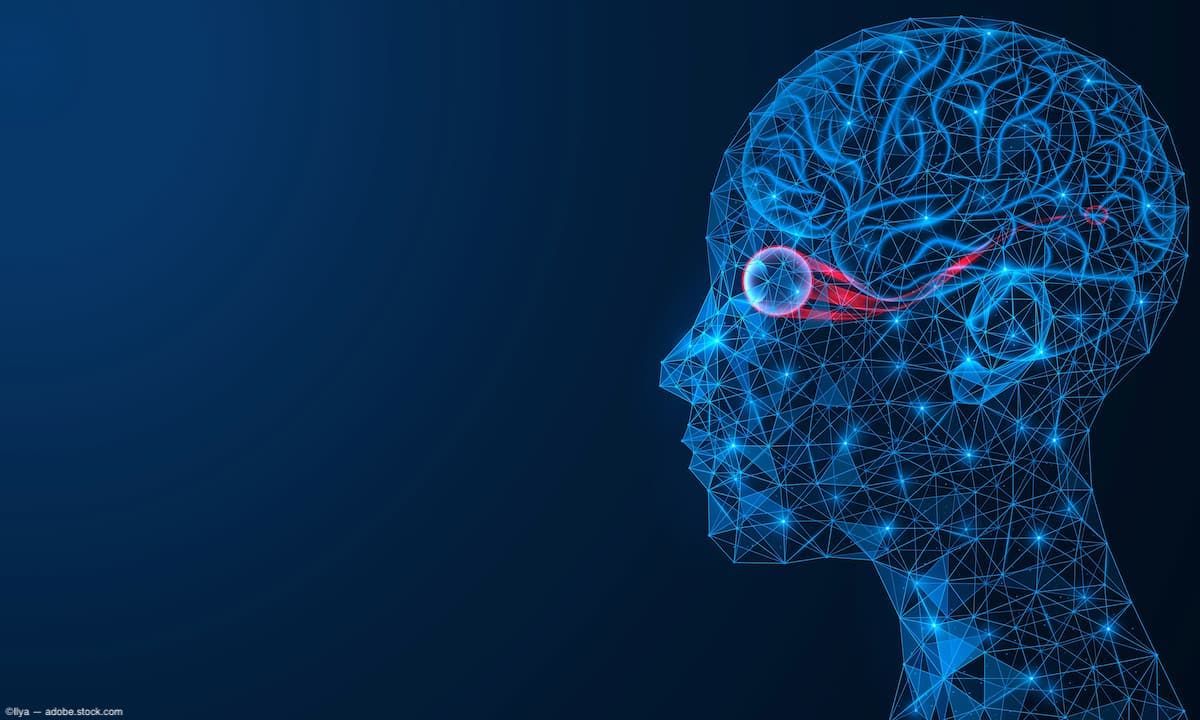Research on the Noelin family of secreted proteins may shed light on blinding conditions
The findings of this study shed new light on processes such as learning and memory but also the development of blinding conditions.
The findings of this study shed new light on processes such as learning and memory but also the development of blinding conditions. (Image Credit: ©Ilya - Adobe.Stock.com)

As science continues to advance, new research developments allow for a better understanding of the processes within the human body that provide crucial functions. A new study has revealed the how damaged or unstable protein networks can lead to blinding conditions.
According to a study in mice from the National Eye Institute (NEI) and the University of Freiberg, Germany, the Noelin family of secreted proteins bind to the external portion of AMPA glutamate receptors and stabilize them on the neuronal cellular membrane1. This binding process is necessary for transmission of full-strength signals between neurons. Without this external, stabilizing protein network, the AMPA receptors are no longer retained at the synapse. This destabilization leads to weak, short-lived synaptic signals. The findings of this study shed new light on processes such as learning and memory but also the development of blinding conditions.
This study was published in the journal Neuron. NEI is part of the National Institutes of Health. The team of researchers led by Tomarev and Bernd Fakler, MD, University of Freiberg, used biochemical and genetic methods to explore the complex network of extracellular proteins maintaining the localization of AMPA-type glutamate receptors at neural synapses.
Stanislav Tomarev, PhD, chief of NEI’s Section on Retinal Ganglion Cell Biology and co-senior author of the report noted in the press release2 why this study may play a key role in our future understanding of the retina, saying, “This study shows that Noelins have a crucial job in supporting synapse function in the brain and other neural tissues like the eye’s retina.”
The researchers first took mouse brain tissue, and isolated cellular membranes and their attached proteins. Using mass spectroscopy and specialized analytic techniques, the team worked out which proteins were associating with AMPA receptors in these membranes. The Noelin family of proteins (primarily Noelin 1, but also Noelins 2 and 3, also known as Olfactomedins 1, 2, and 3, respectively), were strongly associated with the AMPA receptors. The researchers also found secreted and membrane-anchored proteins like Neuritin and Brorin, which are known to be present at synapses.2
To better understand how the Noelins help regulate neuronal activity, the researchers developed mice lacking all three Noelin proteins. Without Noelins present, synapses in the mouse hippocampus had many fewer AMPA glutamate receptors. And when the researchers attempted to stimulate neurons lacking Noelins, the neuronal signals were much lower than normal.2
However, the neuronal signals weren’t just lower. One of the key steps in memory formation is long-term neuron signaling, also known as long-term potentiation. This is achieved through recruitment and stabilization of additional glutamate receptors at the synapse over time, leading to a sustained signal through the neuron. In the brains of mice lacking Noelins, this stabilization didn’t take place, meaning that not only were the neural signals low, they were short-lived as well.
“While this first study showed the Noelins’ role in the brain, these proteins are highly prevalent in the retina as well,” Tomarev said in the news release.2 “Our next task is to understand how changes in these secreted protein networks contribute to the development of retinal disorders, including glaucoma.”
The study was funded by the German Research Foundation and the National Eye Institute Intramural Program. Sami Boudkkazi, Jochen Schwenk and Naoki Nakaya shared lead authorship of the study.
References:
Boudkkazi S, Schwenk J, Nakaya N, Brechet A, Kollewe A, Harada H, Bildl W, Kulik A, Dong L, Sultana A, Zolles G, Schulte U, Tomarev S, and Fakler B. “A Noelin-organized extracellular network of proteins required for constitutive and context-dependent anchoring of AMPA-receptors.” Neuron. August 16, 2023. doi:10.1016/j.neuron.2023.07.013
Scientists discover external protein network can help stabilize neural connections. August 16, 2023. Accessed August 17, 2023. https://www.nei.nih.gov/about/news-and-events/news/scientists-discover-external-protein-network-can-help-stabilize-neural-connections